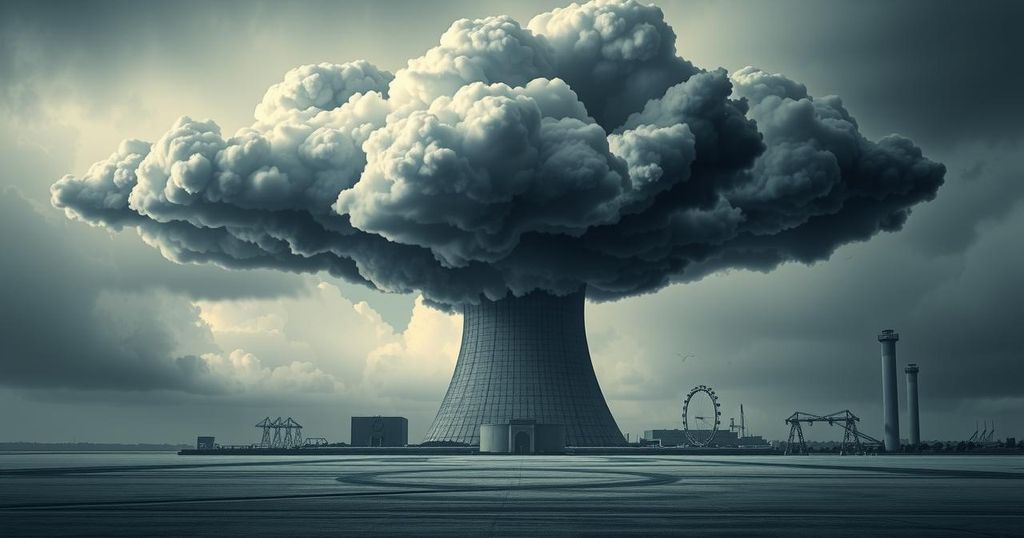U.S. intelligence indicates that Israel may conduct a preemptive strike on Iran’s nuclear sites in the coming months, particularly targeting Fordow and Natanz. This action could escalate tensions in the region and lead to a broader conflict. The report outlines potential strike strategies, emphasizing the U.S. role in supporting Israeli operations. While some officials believe the impact could be limited, debates within the Trump administration reflect differing views on military engagement in the Middle East.
A recent report from U.S. intelligence suggests that Israel may attempt a preemptive strike on Iran’s nuclear program within the next few months. This potential action aims to impede Iran’s progress while heightening regional tensions and raising concerns about a broader conflict in the Middle East. Multiple intelligence documents, notably one from January produced by U.S. military agencies, underscored these warnings, indicating possible attacks on key Iranian facilities like Fordow and Natanz.
According to officials speaking anonymously, the analysis stems from Israel’s earlier attack on Iran, which compromised Tehran’s air defenses. The study forecasts that such an operation could occur in the first half of 2025. The U.S. government agencies, including the CIA and DIA, have refrained from public commentary on these classified assessments.
The White House has asserted that President Donald Trump remains committed to preventing Iran from acquiring nuclear weapons. Trump’s administration advocates for negotiations but indicates a willingness to resort to force if necessary. This situation may challenge Trump’s stated goal of fostering peace in the Middle East while reaffirming U.S. support for Israel.
The intelligence report presents two attack strategies: a stand-off strike, where Israeli aircraft fire missiles from outside Iranian airspace, and a stand-in strike, where jets would drop munitions directly within Iranian territory. The collaboration and support from the U.S. for these operations reflect Washington’s strategic influence over Israel’s potential military actions against Iran.
U.S. assessments indicate that while an Israeli attack could temporarily disrupt Iran’s nuclear activities, it may also lead Iran to escalate its uranium enrichment efforts. Some Israeli officials contest these intelligence findings, believing that a strike could have a more severe impact on Iran’s capabilities.
As debate unfolds within the Trump administration regarding military intervention in the Middle East, Trump’s national security team consists of contrasting ideologies on military strategy. Some members advocate for decisive action against Iran, while others prioritize restraint and reallocation of military resources to counter threats from China.
President Trump has hinted at the complexities surrounding Israel’s military decisions, expressing a preference for diplomatic resolutions over military conflict. After re-establishing a tough policy against Iran, Trump’s remarks have sparked backlash from Iranian officials who view them as violations of international law. The administration continues to navigate the tension between pro-Israel stances and skepticism regarding long-term military engagements in the region.
The likelihood of an Israeli strike against Iran remains uncertain, particularly as previous assessments indicated that Iran had not made a definitive decision to develop nuclear weapons. The landscape has shifted following Trump’s inauguration, with various intelligence reports reiterating the potential for Israeli action against Iran this year, albeit with less detail than in earlier analyses.
In summary, the intelligence report highlights the possibility of an Israeli strike on Iran’s nuclear facilities in the near future, which could further destabilize the Middle East. U.S. support may influence Israel’s military actions, and while some officials predict limited impacts, others foresee a more substantial setback to Iran’s nuclear capabilities. The situation remains fluid, influenced by internal and external pressures within the Trump administration regarding military intervention. The ongoing discussions reveal a strained balance between military action and diplomatic efforts in dealing with Iran.
Original Source: www.dawn.com






